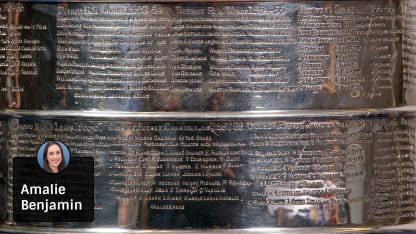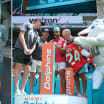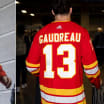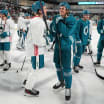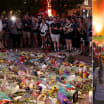"You could tell so much about a League just by taking a deeper dive into those stories," said Steve Mayer, NHL Chief Content Officer and one of the executive producers of the documentary. "It's like a microcosm of what everything is about our League, and how deep the desire is to win something that is so meaningful to so many, and how our whole League has been built on that principle.
"And that's what I take from the documentary, that these players want it so bad from the time they grow up, and it is so, so meaningful, and it's also something that they can rest their whole life on, forever. They're always going to be a Stanley Cup champion.
"But if they never won? Man, it burns them."
From the earliest days of the NHL, the Stanley Cup has meant something special, and that's what executive producers Corey Russell, Dan Cimoroni and Bob McCown, along with Mayer and coordinating producer Matt Nicholson, set out to capture: The work it takes to lift a trophy, the "most recognizable in all of sports," said Nicholson, that so many have lifted before.
"Winning the Stanley Cup is that perfect intersection of ecstasy and relief, when you cross the line from dreamer to champion," narrator Kiefer Sutherland says in the documentary.
And it's a documentary that's able to bridge the gap from those who know little more than the name "Stanley Cup" to those who have dreamed about it and cheered for it and have lived and died by its history all their lives.
"It turns adults into children, just to be next to the Cup," said Nicholson, also the NHL Vice President of Production.
The stories are what make the documentary special, among them Lafleur's tale of one year disappearing with the Cup after the Montreal Canadiens won it and bringing it to his family home, creating a frenzy.
"I got the Cup out and put it on the lawn there outside," Lafleur said. "Everybody started to come and kiss the Cup. Everybody couldn't believe it. Some of the old guys were crying, hugging the Cup and things like that."
Lafleur got a phone call demanding that the Cup be returned. He said no, that the Cup was spending two days with him and that the Canadiens would get it back after that. As he said, "I brought it back on Monday."
